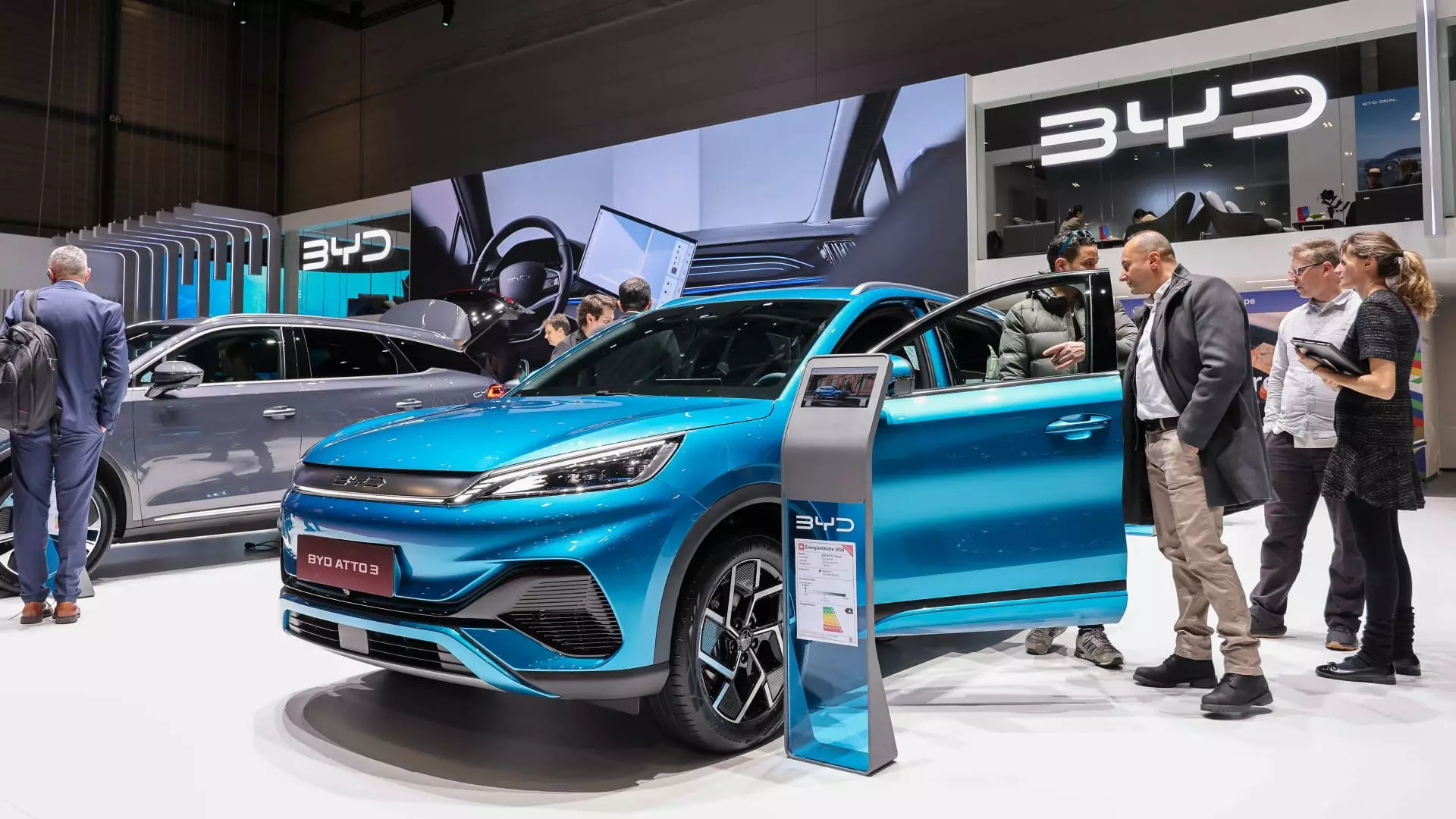The electric vehicle market in Europe is seeing a significant shift with a notable increase in the presence of China-made electric vehicles (EVs). According to a recent policy analysis, China-made EVs are projected to account for more than a quarter of all EV sales in Europe this year, marking a substantial increase from the previous year. In 2020, about 19.5% of battery-powered EVs sold in the EU were from China, with countries like France and Spain seeing a significant number of EV sales originating from China, as reported by the European Federation for Transport and Environment (T&E). The trend is expected to continue, with the share of China-made vehicles in the region predicted to rise to over 25% by 2024.
One of the key drivers behind the increasing presence of China-made EVs in Europe is the global expansion of Chinese brands such as BYD. While Western brands like Tesla currently dominate the EV market in the EU, Chinese brands are making significant headway. It is estimated that Chinese brands alone will account for 11% of the European market by 2024, with the potential to capture 20% of the market by 2027, according to T&E. This growth comes at a time when the European Commission is investigating subsidies provided to electric vehicle makers in China to ensure fair competition in the market. Non-Chinese brands that manufacture and ship EVs from China, including Tesla and BMW, could also be impacted by the ongoing subsidy probe.
One of the challenges that European policymakers and industry stakeholders are facing is the need to achieve a balance between promoting the growth of the EV market and ensuring fair competition. The analysis suggests that raising tariffs on China-made EVs to at least 25% could help level the playing field by making Chinese cars more expensive than their EU counterparts. However, this would also require Europe to enhance its self-sufficiency in battery cell production, a sector where China currently holds a competitive advantage.
Tu Le, founder of Sino Auto Insights, highlighted the role of incentives introduced in China in the early 2010s in fostering a thriving EV ecosystem and driving down costs, making electric vehicles more affordable for consumers. The EU and the US are lagging behind in the EV market due to the delayed focus on developing quality EVs at competitive prices. As Chinese manufacturers lead in mineral mining, refining, and battery cell production, European automakers are challenged to catch up to remain competitive in the global EV landscape.
In response to the policy risks associated with shipping China-made EVs to Europe, manufacturers like Tesla and BYD are increasing their manufacturing efforts on the continent. This strategic move aims to mitigate potential disruptions in the supply chain and ensure a more localized production process, reducing dependency on imports from China. As the EV market continues to evolve, collaboration between Chinese and European manufacturers could play a crucial role in shaping the future of sustainable mobility in the region.
The increasing presence of China-made electric vehicles in Europe is reshaping the competitive landscape of the EV market. While challenges exist in terms of policy alignment and technological advancement, the growing market share of Chinese brands presents new opportunities for innovation and collaboration within the industry. As stakeholders navigate this dynamic environment, strategic partnerships and investments in research and development will be essential to drive sustainable growth and ensure a competitive edge in the evolving world of electric mobility.


Leave a Reply